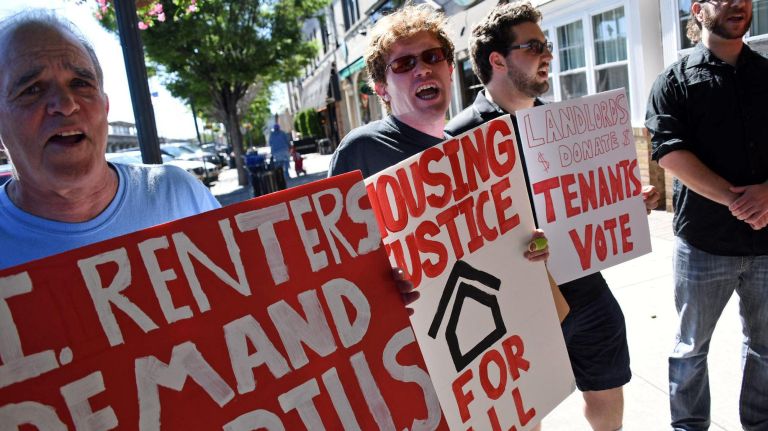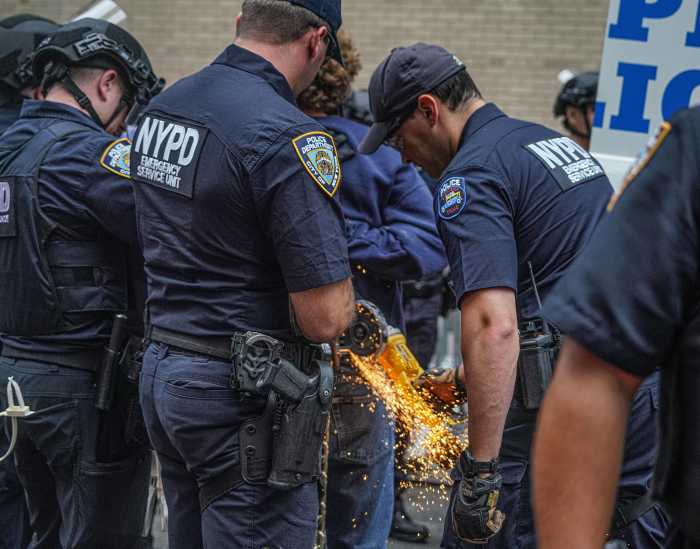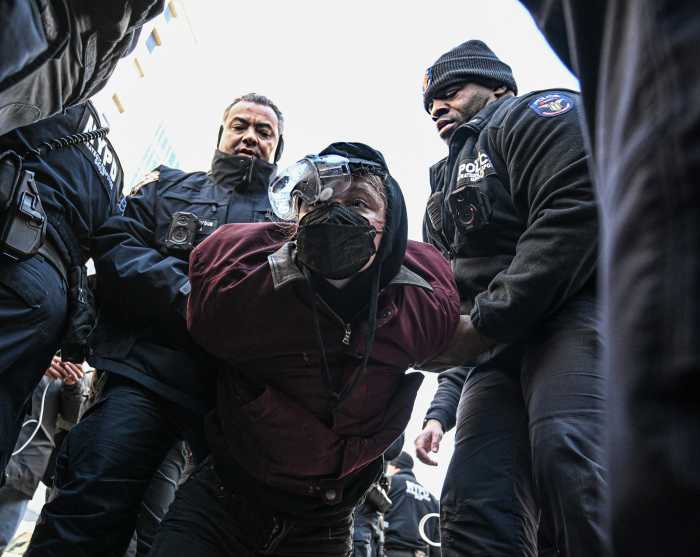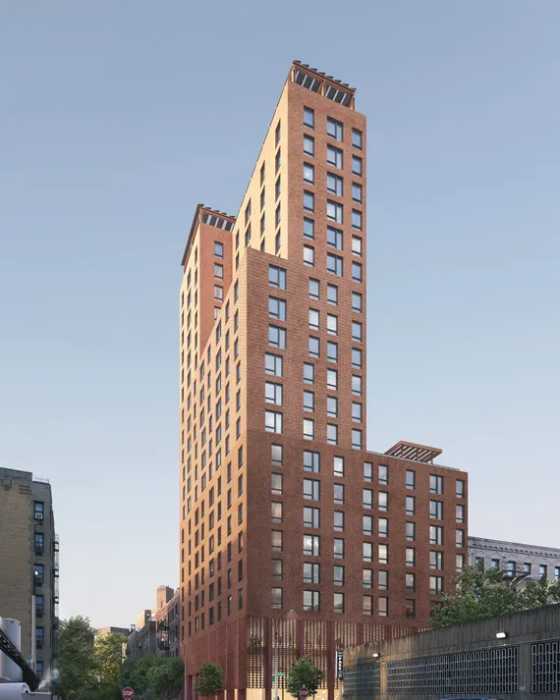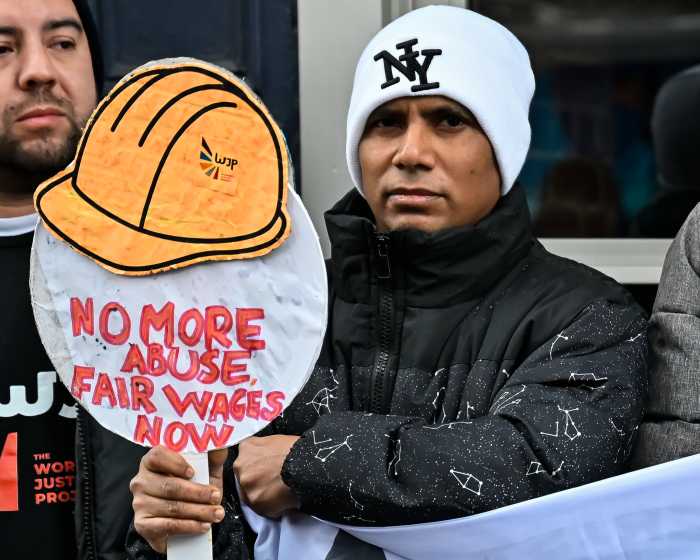
The State Legislature passed a bill on Friday that promises to guarantee the “strongest tenant protections in history,” a day before rent regulation laws expire.
Gov. Andrew Cuomo signed the bill into law Friday afternoon. “I’m confident the measure passed today is the strongest possible set of reforms that the Legislature was able to pass and are a major step forward for tenants across New York,” the governor said in a statement.
Lawmakers had reached a deal on Tuesday on a number of reforms to the current laws, which affect about one million regulated apartments in New York City, and repackaged them into one bill dubbed the Housing Stability and Tenant Protection Act of 2019.
“For too long, power has been tilted in favor of landlords and these measures finally restore equity and extends protections to tenants across the state,” Senate Majority Leader Andrea Stewart-Cousins and Assembly Speaker Carl Heastie said in a joint statement Tuesday night.
Housing advocates and tenants have been pushing lawmakers for years to eliminate a number of landlord-friendly policies that have led to higher rents and fewer rent-stabilized apartments across the state.
Landlords and building owners protested the reforms, arguing some of the proposals would force them to stop investing in building improvements and, in some cases, force them to sell their buildings.
Here’s a look at the reforms included in the new rent regulation laws, which took effect immediately.
Extend rent regulations and make them permanent
Rent regulations will be extended and they won’t expire like they have every four to eight years for decades.
Repeal vacancy decontrol and high-income deregulation
Vacancy decontrol, or when a unit is removed from rent-stabilization because the monthly price hits a certain threshold, currently $2,774.76, and it becomes vacant, will be repealed. High-income deregulation, when a unit is removed from rent-stabilization because the tenant’s income is $200,000 or higher for two consecutive years, also will be repealed.
More than 300,000 rent-stabilized apartments have become market-rate in New York City and surrounding counties since vacancy decontrol was enacted in 1994, according to lawmakers.
Repeal the vacancy bonus and the longevity bonus
The vacancy bonus, which allows property owners to raise rents as much as 20 percent when a unit becomes vacant, and the longevity bonus, which allows rents to be raised by additional amounts based on the time since the last vacancy, will be repealed.
Make preferential rent the base rent at lease renewals
If an owner has given a tenant a unit at a “preferential rent,” a price below the legal regulated rent, he or she will no longer be able to raise the rent to the full legal limit at a lease renewal. When the tenant leaves, the owner can charge up to the full legal rent, as long as the tenant did not leave because of the owner’s failure to maintain the unit.
In 2017, more than 251,000 rent-stabilized homes had preferential rents, according to the state Division of Housing and Community Renewal.
Reform rent increases for Major Capital Improvements (MCIs)
The annual increase that landlords will be allowed to charge tenants for major capital improvements, or buildingwide upgrades, will be lowered from 6 percent to 2 percent in New York City and from 15 percent to 2 percent in other counties. The MCI increases also will be eliminated after 30 years, instead of being permanent.
Additionally, the rules on what spending may qualify for MCI increases will be tightened.
Reform rent increases for Individual Apartment Improvements (IAIs)
The amount of spending on individual apartment improvements will be capped at $15,000 over a 15-year period and owners will only be allowed to make up to three IAIs over that period. Rent increases for IAIs will be eliminated after 30 years, instead of being permanent.
Make rent stabilization an option for localities statewide
The geographical restrictions on the eligibility for the rent stabilization laws will be removed, allowing any city or town in the state that has a vacancy rate of 5 percent or less to regulate rents.
Cap the maximum rent increase for rent-controlled tenants
The maximum rent increases for rent-controlled tenants will be set at the average of the last five Rent Guidelines Board annual rent increases for one-year rent-stabilized renewals, or at 7.5 percent, whichever is less.
Reform the ‘owner use’ exception
Tenants who have lived in a unit for 15 or more years will be protected from eviction under the “owner use” provision, which allows owners to evict a tenant if they want to use the unit for themselves or their immediate family. For this exception to be legal, there must be “an immediate and compelling necessity” for the owner to use the unit as a primary residence.
Prohibit the Rent Guidelines Boards from setting vacancy bonus and longevity rent increases
Rent Guidelines Boards will not be able to set increases based on the current rental cost of a unit or the amount of time since the owner was authorized to take additional rent increases, such as a vacancy bonus.
Keep stabilized apartments rented by nonprofits in the rent-stabilization system
Rent-stabilized units that are provided by nonprofits to individuals who are homeless or are at risk of homelessness will remain rent-stabilized.
Extend the rent overcharge look-back period from four to six years
If a tenant makes an overcharge complaint, the court or the state Division of Housing and Community Renewal will be permitted to review six, or possibly more, years of rent history to determine if an overcharge was made. The period for which an owner is liable for rent-overcharge claims also would be extended from two to six years.
Require an annual report from HCR on rent administration and tenant protection
The state Division of Housing and Community Renewal will be required to submit an annual report on the implementation, administration and enforcement of the rent regulation system and provide data on the number of rent-stabilized units in each county, applications and approvals for major capital improvements, units with preferential rents, rents charged, and overcharge complaints.
Establish the Statewide Housing Security and Tenant Protection Act of 2019
This act will apply to all renters across the state, not just tenants of rent-regulated buildings.
Protections will include banning the so-called “tenant blacklists,” limiting security deposits to one month’s rent, making unlawful eviction a Class A Misdemeanor punishable by a civil penalty of between $1,000 and $10,000 (for example, when a landlord illegally locks out or uses force to evict a tenant), requiring landlords to provide notice to tenants if they intend to increase their rent by more than 5 percent or do not intend to renew the tenants’ lease, and providing tenants more time in eviction proceedings to get a lawyer, fix violations of the lease or pay the rent owed.
Reform co-op/condo conversion
If owners want to convert a building into co-ops or condos, 51 percent of tenants in the building must agree to purchase apartments before the conversion can be effective.
Implement mobile and manufactured home tenant protections
Reforms for mobile and manufactured home tenants will include a cap on rent increases and protections against evictions.



